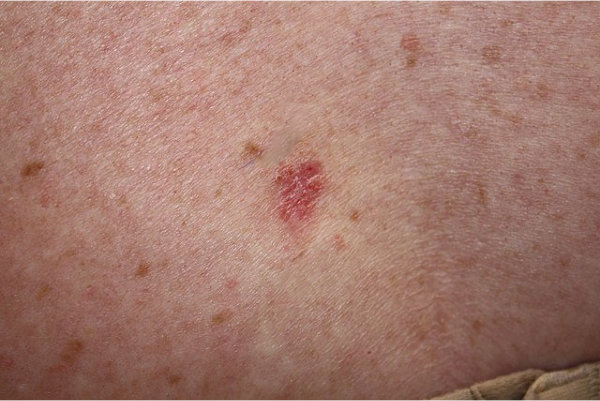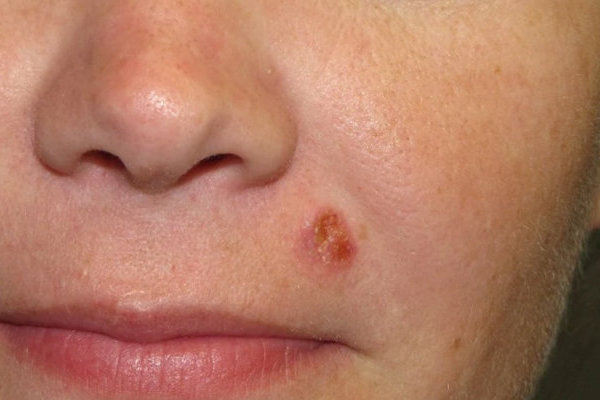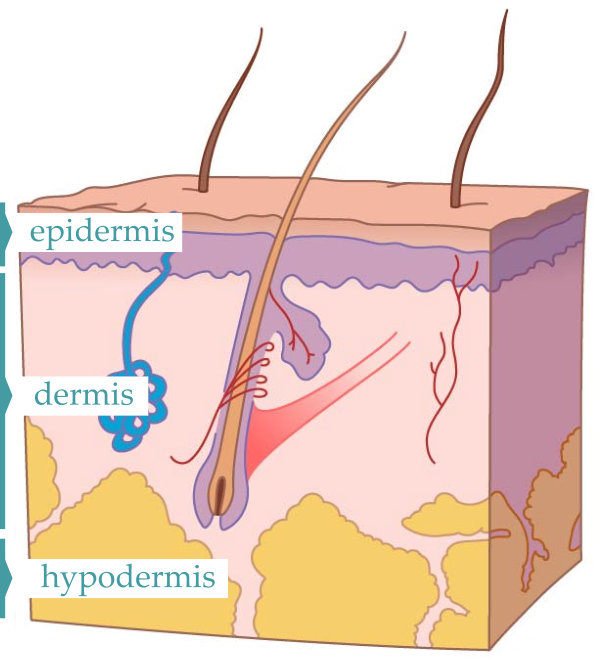Skin Cancer & Prevention
At Aesthetics Plus we are keen to help you prevent skin cancer with appropriate use of UVA & B protection – using the right product correctly, applying an effective protectant every two hours, to all exposed areas of the skin e.g. face, back of the neck, tops of the ears, on top of the head where there is hair loss.
We are also able to offer dermoscopy – this is looking at a mole/lesion under light and magnification using a piece of equipment called a dermatoscope, we can take photographs that we can email to your surgery, this can help your doctor with a diagnosis.
We do encourage you to go straight to your GP if you have a mole/dark area of skin that has appeared/changed over a short period of time.
Where Skin Cancer Begins
The skin has several layers, but the two main layers are the epidermis (upper or outer layer) and the dermis (lower or inner layer). Most skin cancers develop from cells found in the epidermis layer of the skin.

Basal Cell Carcinoma
BCC sometimes called a rodent ulcer, a cancer of the basal cells at the bottom of the epidermis. About 75% of skin cancers are BCCs, most being slow-growing and rarely spread to others parts of the body, but occasionally some are aggressive and may spread into the deeper layers of the skin and sometimes to the bones.
Squamous Cell Carcinoma
SCC is a cancer of the cells in the outer layer of the skin, it is the second most common type of skin cancer in the UK. Usually SCCs are slow-growing, and only spread if left untreated for a long time. Occasionally they can be aggressive and spread at an earlier stage.


Malignant Melanoma
Less common, the Malignant Melanoma grows quickly and needs to be treated early. About half of all melanomas start with a new abnormal-looking mole, a dark area or new mole that changes over weeks/months.
This type of melanoma accounts for less than 1% of all skin cancers in the UK.

